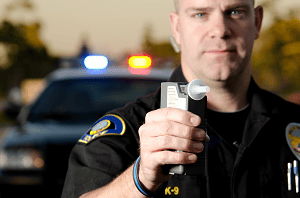 If you’ve been convicted of driving under the influence (DUI), the state of Virginia may require you to install an ignition interlock device in your car. Although these devices are expensive and embarrassing, they effectively reduce re-arrest rates after installation, according to the Centers for Disease Control and Prevention (CDC). It’s important to know what an ignition interlock is, how it works, who must get one, and how an attorney may be able to help in your case.
If you’ve been convicted of driving under the influence (DUI), the state of Virginia may require you to install an ignition interlock device in your car. Although these devices are expensive and embarrassing, they effectively reduce re-arrest rates after installation, according to the Centers for Disease Control and Prevention (CDC). It’s important to know what an ignition interlock is, how it works, who must get one, and how an attorney may be able to help in your case.
Understanding Ignition Interlock Devices
An ignition interlock is a small, plastic device with a tube into which a driver must exhale before starting the vehicle. The device connects to a car’s computer and electronic system, giving it full control over the start mechanism or ignition. A device must be installed by one of the four approved providers in Virginia, and the offender must have the device maintained each month to ensure proper working condition.
An Ignition Interlock Prevents Drunk Driving
Just like a breath test in a DUI stop, the ignition interlock requires the driver to exhale into the tube attached to the device. It measures the alcohol content in a driver’s breath to compute whether or not he is sober enough to operate a vehicle. It’s also important to know that:
- If the device measures over 0.02 grams per 210 liters of breath, the car will not start. Depending on the brand, the device will not allow a retest for 5 – 15 minutes.
- If the driver fails a second initial test, he may not be able to test again for 30 or more minutes. Additionally, the device sends this data to the state—which may result in further punitive action such as jail time or additional alcohol abuse treatment programs.
- In addition to an initial test, the device requires the driver to re-test while driving at random intervals.
- If a driver fails a re-test, the device will prompt the driver to pull over by engaging the horn and light mechanisms until the car is shut off.
- The device keeps a record of the driver’s breath and traveling data, sending the data wirelessly to the proper government monitoring agency.
- A device must be installed in any vehicle a driver will use.
Even First-Time DUI Offenders May Be Required to Install a Device
First-time DUI convictions are frustrating and expensive. Although Virginia law mandates a first-time offender to have an ignition device installed, there is an alternative in some cases: agreeing to a revoked license for a year. Even if you choose to forego installing the ignition device, have your license revoked instead, and not drive for that entire year, you must still pay a reinstatement fee to the Virginia Department of Motor Vehicles (DMV), produce proof of insurance, and retake a driving test. However, typically, Virginia requires a first-time DUI offender to:
- Have a device installed in at least one vehicle
- Carry a restriction on their driver’s license in exchange for driving privileges
- Pay for the installation of ignition devices in any vehicle she will use
- Maintain the device or devices for as long as the judge orders—which is typically at least six months
If the judge does not order an ignition device, the DMV most likely will. If the first-time offender violates proper use of the device, the DMV may revoke her license for one year.
Ignition Devices Are Embarrassing and Expensive
Interlock devices have become more compact since their inception, but it’s still obvious to passengers and passersby when a driver must use the device to start his vehicle—which can be embarrassing. To use the device, a driver must:
- Insert the key
- Turn the ignition to activate the electric system
- Wait for the device to warm up
- Blow into the mouthpiece
- Wait for an approval signal from the device
- Turn the ignition fully to engage the engine
Additionally, to have an interlock device installed is no easy feat. A driver must make an appointment with an approved company, have all correct paperwork prepared and organized, and pay to have the device installed in one or more vehicles. Though initial installation is usually free, the cost per month for monitoring could range from $75 – $80 per device.
Don’t Handle a DUI Charge Alone
If you were recently arrested for a DUI, you need the help of an experienced attorney. At Kearney, Freeman, Fogarty & Joshi, we have decades of experience defending clients and achieving a positive outcome. To speak with a member of our team, start a live chat on our website.
|
Related links: |

